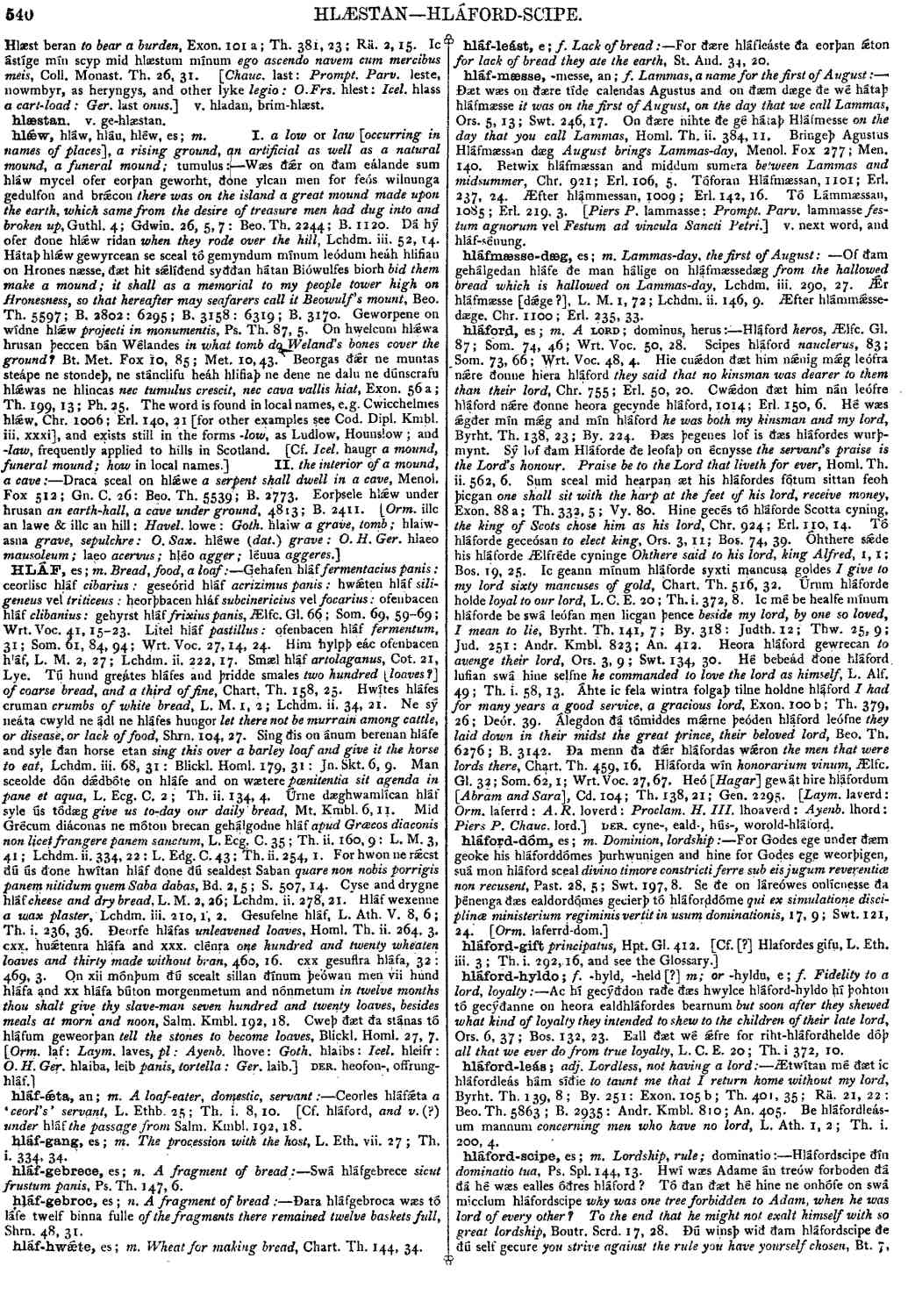hlǽw
- noun [ masculine ]
-
Wæs ðǽr on ðam eálande sum hláw mycel ofer eorþan geworht, ðone ylcan men for feós wilnunga gedulfon and brǽcon
there was on the island a great mound made upon the earth, which same from the desire of treasure men had dug into and broken up,
- Guthl. 4; Gdwin. 26, 5, 7: Bec. Th. 2244; B. 1120.
-
Dá hý ofer ðone hlǽw ridan
when they rode over the hill,
- Lchdm. iii. 52, 14.
-
Hátaþ hlǽw gewyrcean se sceal tó gemyndum mínum leódum heáh hlifian on Hrones næsse, ðæt hit sǽlíðend syððan hátan Biówulfes biorh
bid them make a mound; it shall as a memorial to my people tower high on Hronesness, so that hereafter may seafarers call it Beowulf's mount,
- Beo. Th. 5597; B. 2802: 6295; B. 3158: 6319; B. 3170.
-
Geworpene on wídne hlǽw
projecti in monumentis,
- Ps. Th. 87, 5.
-
On hwelcum hlǽwa hrusan þeccen bán Wélandes
in what tomb do Weland's bones cover the ground?
- Bt. Met. Fox 10, 85; Met. 10, 43.
-
Beorgas ðǽr ne muntas steápe ne stondeþ, ne stánclifu heáh hlifiaþ ne dene ne daiu ne dúnscrafu hlǽwas ne hlincas
nec tumulus crescit, nec cava vallis hiat,
- Exon. 56 a; Th. 199, 13; Ph. 25.
- The word is found in local names, e.g. Cwicchelmes hlǽw. Chr. 1006; Erl. 140, 21 [for other examples see Cod. Dipl. Kmbl. iii. xxxi], and exists still in the forms -low, as Ludlow, Hounslow; and -law, frequently applied to hills in Scotland. [Cf. Icel. haugr a mound, funeral mound; how in local names.]
-
Draca sceal on hlǽwe
a serpent shall dwell in a cave,
- Menol. Fox 512; Gn. C. 26: Beo. Th. 5539; B. 2773.
-
Eorþsele hlǽw under hrusan
an earth-hall, a cave under ground,
- 4813; B. 2411.
Bosworth, Joseph. “hlǽw.” In An Anglo-Saxon Dictionary Online, edited by Thomas Northcote Toller, Christ Sean, and Ondřej Tichy. Prague: Faculty of Arts, Charles University, 2014. https://bosworthtoller.com/19169.
Checked: 0